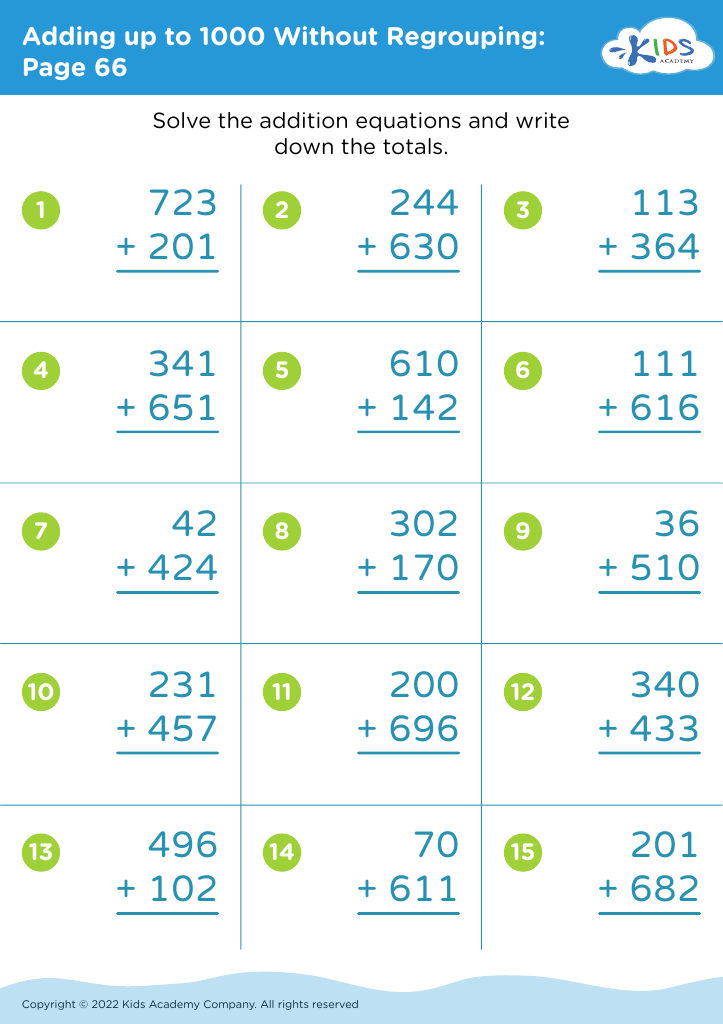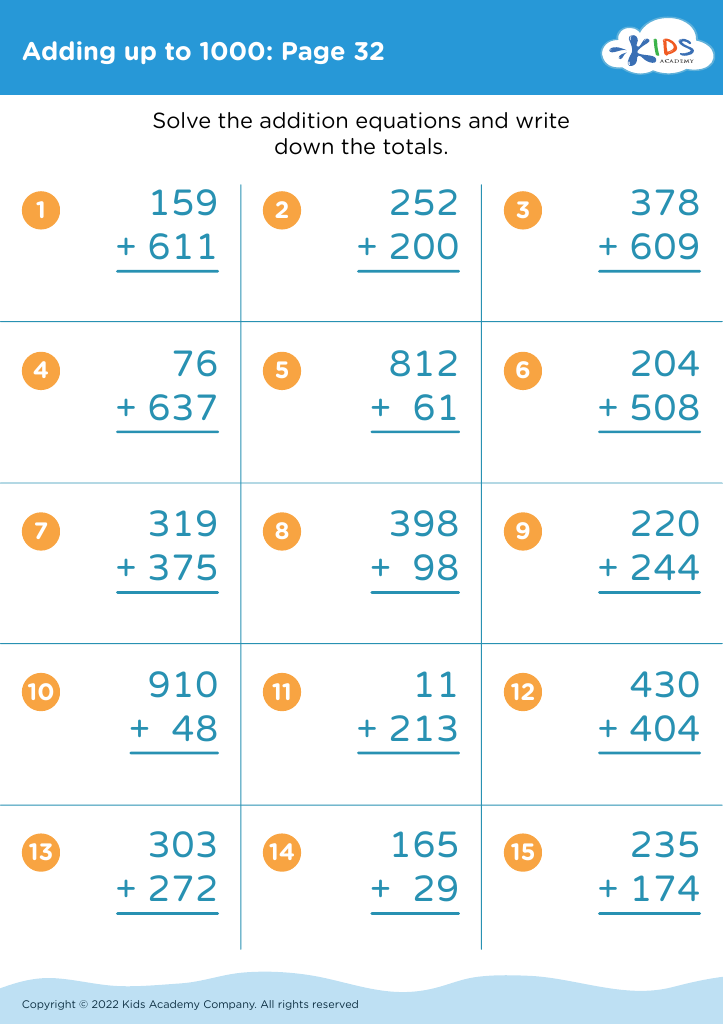Recognize shapes Addition & Subtraction Worksheets for 9-Year-Olds
4 filtered results
-
From - To
Enhance your 9-year-old's math skills with our engaging Recognize Shapes Addition & Subtraction Worksheets! Designed specifically for young learners, these colorful and captivating worksheets combine essential math practice with shape recognition. Kids will enjoy solving addition and subtraction problems using various geometric shapes, fostering both mathematical understanding and visual awareness. These worksheets not only reinforce basic math concepts but also make learning fun and interactive. Perfect for classroom use or homework assignments, our resources support skill development in a creative way. Download our worksheets today and watch your child excel in their math journey while discovering the world of shapes!
Understanding shapes, addition, and subtraction is crucial for 9-year-olds as these concepts form the foundation for more advanced mathematical skills and cognitive development. Recognizing shapes helps children identify and analyze different geometric figures, fostering spatial awareness and critical thinking. This skill is vital not only in math but also in real-world applications like art, architecture, and navigation.
Moreover, mastering addition and subtraction at this age is essential for building fluency in arithmetic. These operations are the building blocks for more complex mathematical concepts, such as multiplication, division, and even algebra. Proficiency in these areas enables students to solve problems confidently and effectively, enhancing their overall academic performance.
For parents and teachers, nurturing these skills helps to cultivate a love for learning and instills perseverance in overcoming challenges. Engaging children in activities that involve shapes and basic arithmetic can make learning enjoyable and interactive. Ultimately, focusing on these foundational skills supports children's cognitive and emotional development, preparing them for future academic success and everyday problem-solving. As they grasp these essential concepts, they are better equipped to navigate the complexities of higher mathematics and real-life challenges. Ultimately, this contributes to a well-rounded education.
























